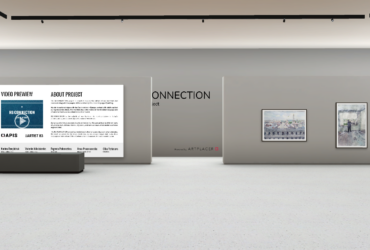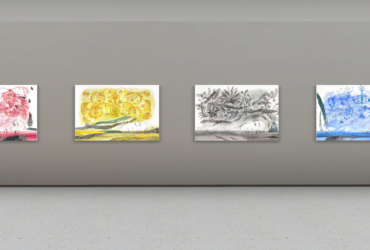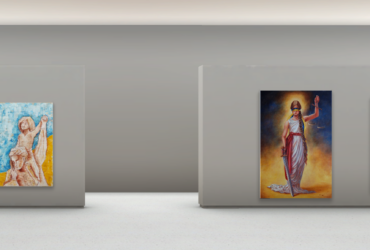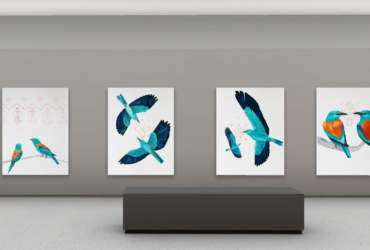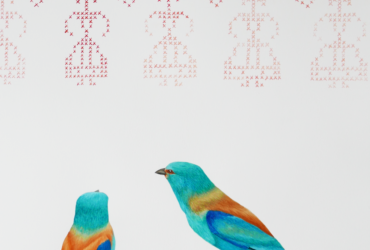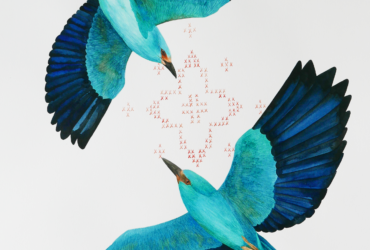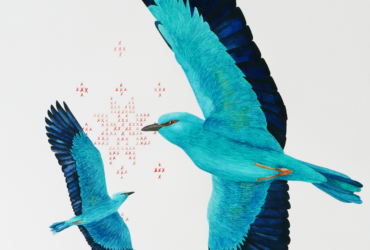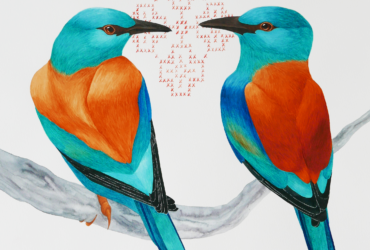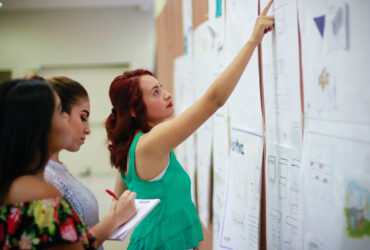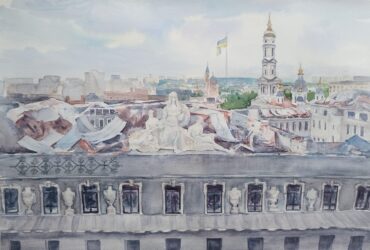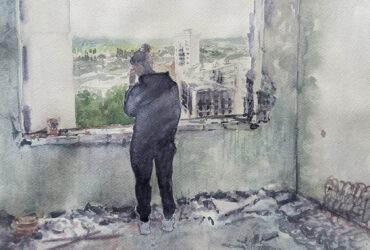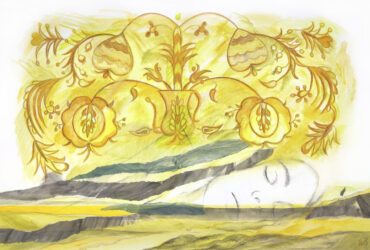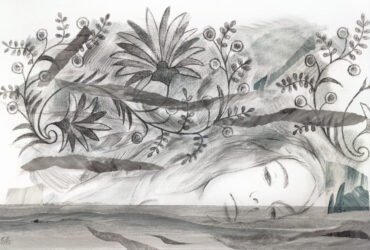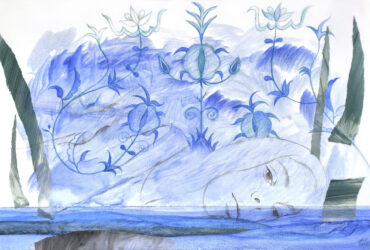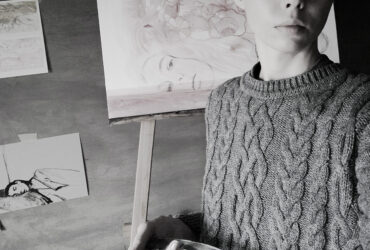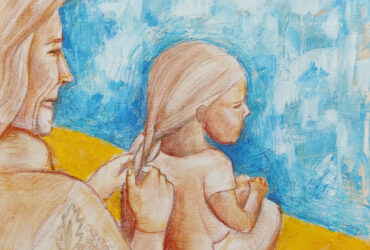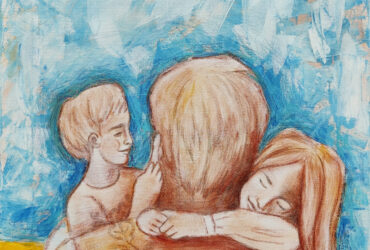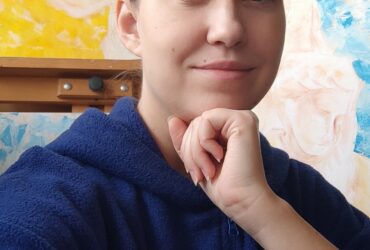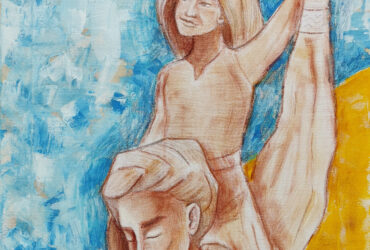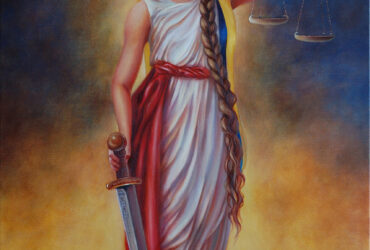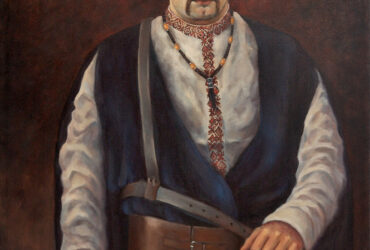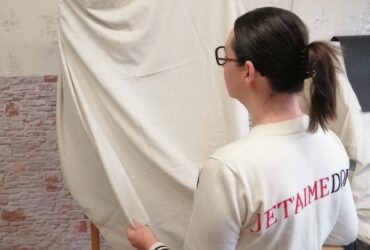1. ABOUT THE VIRTUAL RESIDENCY PROGRAMME: RE:CONNECTION
RE:CONNECTION – About the virtual residency project
Project reconnection was implemented by Ukrainian artists that are part of Uartist community, a community that was initiated by Art is Us learner Anna Miklashevich. Even though the Art is Us project primarily supported learners from Slovenia, Germany, Italy and Greece, it offered an opportunity for virtual art residency for Ukrainian artists as well. A collective virtual residency project Re:Connection kicked off in the very beginning of 2023 and on the 24th February 2023, on the exact day of one year anniversary since the full scale attack on Ukraine, the results af the virtual art residents were presented in the scope of Ljubljana Art is Us exhibition organised by APIS Institute.
The RE:CONNECTION virtual residency programme has brought together five Ukrainian artists from different parts of the country: KARINA DANYLCHUK, VALERIIA NIKOLAIENKO, EVGENIA POBEREZHNA, ANNA PONOMARENKO and OLHA YEFIMOVA. The artists were united by a common goal to revive their cultural heritage and connect with people around the world through virtual residency. Despite the extremely challenging circumstances in which the artists had to work, they were able to create beautiful pieces of art that reflect their shared values and aspirations.
You can watch the presentation from the Art is Us exhibition here:


